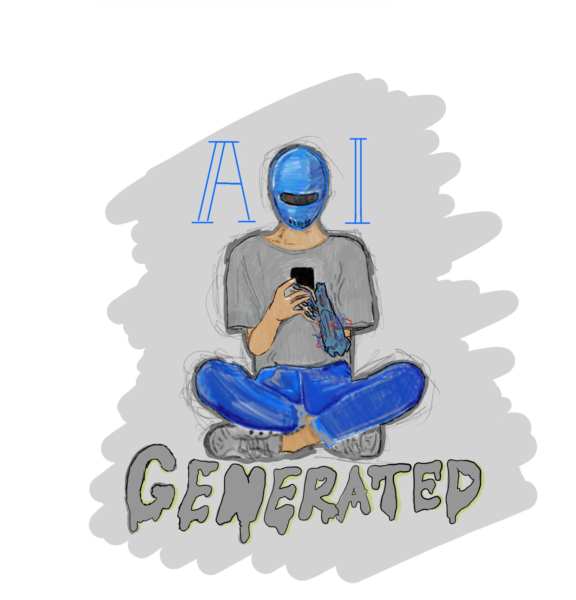
Tulane University will not ban the use of ChatGPT — and other similar machine learning and deep learning technologies — on its campus. In fact, Tulane encourages both its students and faculty to engage with and explore the uses of AI programming. The university has established new infrastructure to ensure that researchers carry out their work with AI in the most efficient and ethical ways possible.
In an email to students and faculty, President Mike Fitts said that the university’s goal is to “harness the exciting promise AI holds to advance our institutional mission and the lives of the members of the Tulane community.”
ChatGPT’s release has raised concerns about academic integrity. The software can generate homework and test responses, and this form of cheating cannot be detected by the software that is traditionally used to identify plagiarism. AI technology also poses problems regarding reliability and inclusivity, including fears for how it will impact intellectual property rights.
Any form of AI assistance on homework, quizzes and tests that goes beyond the scope of grammar and spell checking is not in compliance with Tulane’s Code of Academic Conduct. It is also prohibited by the university’s academic integrity policies, according to a letter to professors from Provost Robin Forman.
This summer, Tulane created the Connolly Alexander Institute for Data Science and the Center for Community-Engaged Artificial Intelligence to design AI systems that are fair, transparent and accountable. The Data Hub was renamed after a $12 million donation from Tulane alumni Libby and Robert Alexander to support data literacy.
The Data Hub first launched in 2021 and began its first course, Introduction to Data, this semester. The center also provides grants to undergraduate students in fields of data science.
Tulane’s third center focused on AI and data research is the Jurist Center for Artificial Intelligence. The center, which intends to ensure research and education in AI and related fields, supports a healthier and more connected global community, according to an article in Tulanian Magazine.
However, it remains unclear how the university plans to negate the potential risks that an open-armed embrace of machine learning and deep learning AI on campus could pose to academic honesty and integrity of students.
A recent survey found that nearly one in three college students nationwide have used ChatGPT on written assignments in the last year. Recently, ChatGPT technology succeeded in passing graduate-level tests at several universities.
There is not yet a reliable system to detect when a student has used generative AI programs to complete their work. GPTZero is the most accurate detection software available, but studies show that it can still produce false positives.
In his letter, Forman said professors are encouraged to explore these AI programs for themselves so they can identify the technology’s deficiencies and use those to design coursework in such a way that makes it easier to identify when students use AI software on their assignments.
Forman also said faculty should consider allowing students to experiment with generative AI programs, both to invite innovation and also to prepare them to one day work in a job that could be changed by AI.
English professor Matthew P. Smith said he has done experimentation with ChatGPT and found that the software does not do well with making value statements. He plans to create writing assignments that encourage students to take a stance and make judgments, as well as use in-person exams.
“I think oral examinations are one way to figure out how much (students) know of the material,” Smith said. “The downside is that those might be a little intimidating, but I’m hoping it will be more like a conversation where I can get a sense of if the student is learning or not.”
“ChatGPT presents an opportunity to help students understand how artificial intelligence systems work, how to question easy answers, identify bias, examine dubious claims, apply logic, and form critical arguments,” Fitts wrote in an opinion article for USA Today in April.


